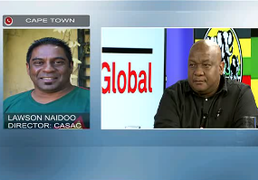SA buries Mandela, its ‘greatest son’
by Staff Writer
2013-12-15 13:07:35.0
NELSON Mandela, South Africa’s first democratic president and a champion of human rights, was on Sunday laid to rest in Qunu, in the Eastern Cape, following 10 days of national mourning after his death in Johannesburg at the age of 95.
Mandela’s casket, draped with the South African flag, was carried by military procession from a large dome erected for the funeral service just past noon to be buried at the family cemetery beside his parents and his son — in keeping with Xhosa custom that the dead are laid to rest when the sun is at it highest.
Choirs sang a farewell to the anti-apartheid icon as his coffin was moved. "Our hearts are in pain for you. Farewell, until we see you again," they sang in isiXhosa.
At the cemetery, eight military pall bearers pushed the coffin on a trolley towards the grave as muffled drums played in the background. The site was flanked by banks of white flowers.
As the burial ceremony got under way, helicopters bearing large South African flags passed overhead. Jets flew over the burial in a formation usually deployed only when pilots salute a missing comrade. The national anthem was played and a 21-gun salute fired.
The lowering of the coffin was not televised.
Only 450 mourners of the roughly 4,500 who attended the funeral service dome earlier in the day were allowed to proceed to the burial, presided over by Methodist Church general secretary Vuyani Nyobole.
Due to space constraints and to allow some privacy, the rest were asked to remain behind at the service venue and watch proceedings on a large screen.
President Jacob Zuma, former president Thabo Mbeki and past and present Cabinet ministers followed the casket on foot.
Also among those present at the burial were former and current heads of state, African Union chairman and Ethiopian Prime Minister Hailemariam Desalegn, members of the African National Congress’s (ANC’s) national working committee and interministerial committee, National Assembly speaker Max Sisulu, Chief Justice Mogoeng Mogoeng and his deputy, Dikgang Moseneke, and billionaire businessman Richard Branson.
On Monday, in a private traditional ceremony, Mandela family members will wash their hands in the blood of a slaughtered sheep, symbolically signifying that the funeral is over and they can carry on with their lives.
Journey continues
Earlier, ANC deputy president Cyril Ramaphosa welcomed guests from abroad and around the country.
"Each one of us ... (and) millions of people around the world have had their own Madiba moment," he told mourners. "Today we come to lay him to rest ... South Africa’s greatest son."
During the funeral service, Mr Zuma said Sunday marked the end of a 95-year journey for Mandela.
"It is the end of 95 glorious years of a freedom fighter, a dedicated, humble servant of the people of South Africa, a fountain of wisdom, a pillar of strength and a beacon of hope," he said. "We are truly honoured to be part of the final journey of this great son of our country and the founding president of a free and democratic South Africa."
He added: "As your journey ends today, ours must continue in earnest. One thing we can assure you today, Tata, as you take your final steps, is that South Africa will continue to rise."
It was through Mandela that the world learned the spirit of endurance and forgiveness, read an obituary read out to mourners by his grandson Ndaba Mandela.
"It is through Mandela that the world cast its eyes on South Africa and took notice of the severe and organised repression of black South Africans," Ndaba said. "Yet, it was also through Mandela that the world would learn the spirit of endurance, the triumph of forgiveness and the beauty of reconciliation. Indeed, the story of Nelson Mandela is so much the story of South Africa."
Struggle veteran Ahmed Kathrada told mourners that Mandela had left to join the "A-team" of the ANC.
Mr Kathrada said South Africa was deeply grateful for the sacrifice made by Mandela to ensure the country was a lively democracy.
"We are grateful that dignity has been restored to all South Africans. We are deeply grateful that the lives of thousands of people have improved and continue to improve," he said. "We are deeply grateful for a constitution that encompasses all that is good in us."
Mr Kathrada concluded his address by saying: "When Walter (Sisulu) died, I lost a father, and now I have lost a brother. My life now is in a void and I don’t know who to turn to ...
"The last few days the masses of people ... have demonstrated how very connected they feel to you. Farewell, my dear brother, my mentor, my leader."
With Sapa and Paul Vecchiatto
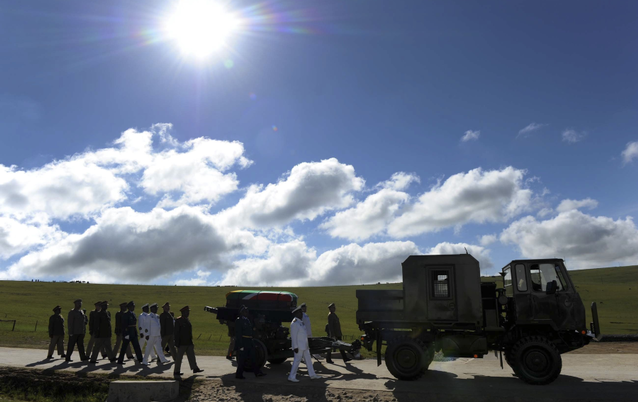
Former president Nelson Mandela’s coffin arrives on a gun carriage for his funeral ceremony in Qunu on Sunday. Picture: GCIS
NELSON Mandela, South Africa’s first democratic president and a champion of human rights, was on Sunday laid to rest in Qunu, in the Eastern Cape, following 10 days of national mourning after his death in Johannesburg at the age of 95.
Mandela’s casket, draped with the South African flag, was carried by military procession from a large dome erected for the funeral service just past noon to be buried at the family cemetery beside his parents and his son — in keeping with Xhosa custom that the dead are laid to rest when the sun is at it highest.
Choirs sang a farewell to the anti-apartheid icon as his coffin was moved. "Our hearts are in pain for you. Farewell, until we see you again," they sang in isiXhosa.
At the cemetery, eight military pall bearers pushed the coffin on a trolley towards the grave as muffled drums played in the background. The site was flanked by banks of white flowers.
As the burial ceremony got under way, helicopters bearing large South African flags passed overhead. Jets flew over the burial in a formation usually deployed only when pilots salute a missing comrade. The national anthem was played and a 21-gun salute fired.
The lowering of the coffin was not televised.
Only 450 mourners of the roughly 4,500 who attended the funeral service dome earlier in the day were allowed to proceed to the burial, presided over by Methodist Church general secretary Vuyani Nyobole.
Due to space constraints and to allow some privacy, the rest were asked to remain behind at the service venue and watch proceedings on a large screen.
President Jacob Zuma, former president Thabo Mbeki and past and present Cabinet ministers followed the casket on foot.
Also among those present at the burial were former and current heads of state, African Union chairman and Ethiopian Prime Minister Hailemariam Desalegn, members of the African National Congress’s (ANC’s) national working committee and interministerial committee, National Assembly speaker Max Sisulu, Chief Justice Mogoeng Mogoeng and his deputy, Dikgang Moseneke, and billionaire businessman Richard Branson.
On Monday, in a private traditional ceremony, Mandela family members will wash their hands in the blood of a slaughtered sheep, symbolically signifying that the funeral is over and they can carry on with their lives.
Journey continues
Earlier, ANC deputy president Cyril Ramaphosa welcomed guests from abroad and around the country.
"Each one of us ... (and) millions of people around the world have had their own Madiba moment," he told mourners. "Today we come to lay him to rest ... South Africa’s greatest son."
During the funeral service, Mr Zuma said Sunday marked the end of a 95-year journey for Mandela.
"It is the end of 95 glorious years of a freedom fighter, a dedicated, humble servant of the people of South Africa, a fountain of wisdom, a pillar of strength and a beacon of hope," he said. "We are truly honoured to be part of the final journey of this great son of our country and the founding president of a free and democratic South Africa."
He added: "As your journey ends today, ours must continue in earnest. One thing we can assure you today, Tata, as you take your final steps, is that South Africa will continue to rise."
It was through Mandela that the world learned the spirit of endurance and forgiveness, read an obituary read out to mourners by his grandson Ndaba Mandela.
"It is through Mandela that the world cast its eyes on South Africa and took notice of the severe and organised repression of black South Africans," Ndaba said. "Yet, it was also through Mandela that the world would learn the spirit of endurance, the triumph of forgiveness and the beauty of reconciliation. Indeed, the story of Nelson Mandela is so much the story of South Africa."
Struggle veteran Ahmed Kathrada told mourners that Mandela had left to join the "A-team" of the ANC.
Mr Kathrada said South Africa was deeply grateful for the sacrifice made by Mandela to ensure the country was a lively democracy.
"We are grateful that dignity has been restored to all South Africans. We are deeply grateful that the lives of thousands of people have improved and continue to improve," he said. "We are deeply grateful for a constitution that encompasses all that is good in us."
Mr Kathrada concluded his address by saying: "When Walter (Sisulu) died, I lost a father, and now I have lost a brother. My life now is in a void and I don’t know who to turn to ...
"The last few days the masses of people ... have demonstrated how very connected they feel to you. Farewell, my dear brother, my mentor, my leader."
With Sapa and Paul Vecchiatto


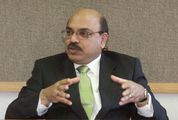
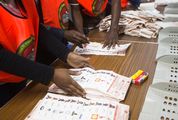
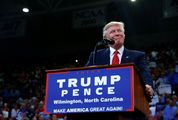
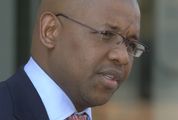




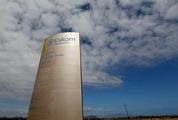
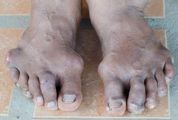
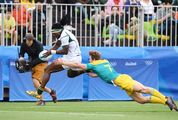
 News and views on the death, and life, of former president Nelson Mandela, with tributes and photographs
News and views on the death, and life, of former president Nelson Mandela, with tributes and photographs







